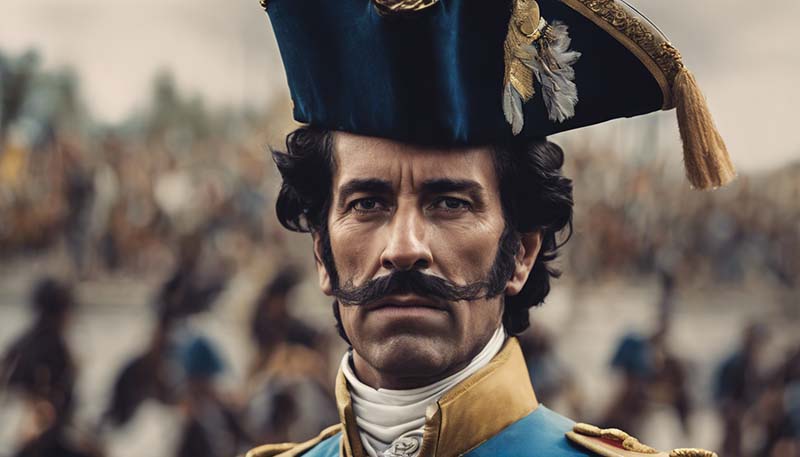Simón Bolívar: The Liberator of South America
Simón Bolívar, also known as El Libertador, was a Venezuelan military and political leader who played a crucial role in the Latin American wars of independence. His efforts led to the independence of several countries in South America from Spanish rule in the early 19th century. This article will explore Bolívar's life, his role in the independence movement, and his lasting legacy.
## Early Life and Education
Simón José Antonio de la Santísima Trinidad Bolívar y Palacios was born on July 24, 1783, in Caracas, which is now the capital of Venezuela. He was born into a wealthy family of Spanish descent, and his parents ensured that he received a high-quality education.
Bolívar's early education was provided by private tutors, and he later attended several institutions, including the Academy of Caracas, where he studied various subjects, including literature, philosophy, and history. In 1803, Bolívar traveled to Europe, where he continued his education and was exposed to the ideas of the Enlightenment.
## The Independence Movement
The Latin American wars of independence were a series of conflicts that took place in the early 19th century, as various regions sought to break free from Spanish colonial rule. Bolívar played a central role in this movement, leading the fight for independence in several countries.
Advertisement
In 1810, Bolívar returned to Venezuela and joined the independence movement. He quickly rose through the ranks and became a key figure in the struggle for independence. Bolívar's military campaigns were marked by a combination of strategic brilliance and tenacity, as he fought numerous battles against the Spanish forces.
One of Bolívar's most significant victories came in 1819, when his forces defeated the Spanish army at the Battle of Boyacá in present-day Colombia. This victory marked the beginning of the end for Spanish rule in South America.
## The Gran Colombia
In 1819, Bolívar established the Republic of Colombia, which included present-day Colombia, Venezuela, Ecuador, and Panama. This new nation was an important step in the process of unifying the various regions of South America and establishing a stable political system.
Bolívar served as the president of the Republic of Colombia and worked tirelessly to establish a strong central government. However, his efforts were met with resistance from various factions, and the Republic of Colombia eventually dissolved in 1830.
## The Liberator of South America
Bolívar's role in the independence movement earned him the title of El Libertador, or "The Liberator." His efforts led to the independence of several countries in South America, including Venezuela, Colombia, Ecuador, Peru, and Bolivia.
In addition to his military campaigns, Bolívar also played a significant role in shaping the political landscape of South America. He advocated for the establishment of a unified South American nation, which he believed would be more effective in protecting the region's interests.
Bolívar's vision for a unified South America was ultimately not realized, but his efforts to promote cooperation and collaboration among the newly independent nations laid the groundwork for future regional integration efforts.
## Legacy and Impact
Simón Bolívar's legacy is a complex one, marked by both his significant contributions to the independence movement and the challenges he faced in establishing a stable political system in South America.
Bolívar's military campaigns were instrumental in the successful struggle for independence, and his vision for a unified South America helped to shape the region's political landscape. However, his efforts to establish a strong central government in the Republic of Colombia were met with resistance, and the nation ultimately dissolved.

Despite these challenges, Bolívar's legacy lives on in the countries he helped to liberate. His name is celebrated in many places, including the capital of Bolivia, which was named in his honor.
In conclusion, Simón Bolívar was a key figure in the Latin American wars of independence and played a central role in the struggle for independence in several countries in South America. His efforts helped to shape the political landscape of the region and laid the groundwork for future regional integration efforts. Bolívar's legacy as El Libertador continues to be celebrated and remembered in the countries he helped to liberate.